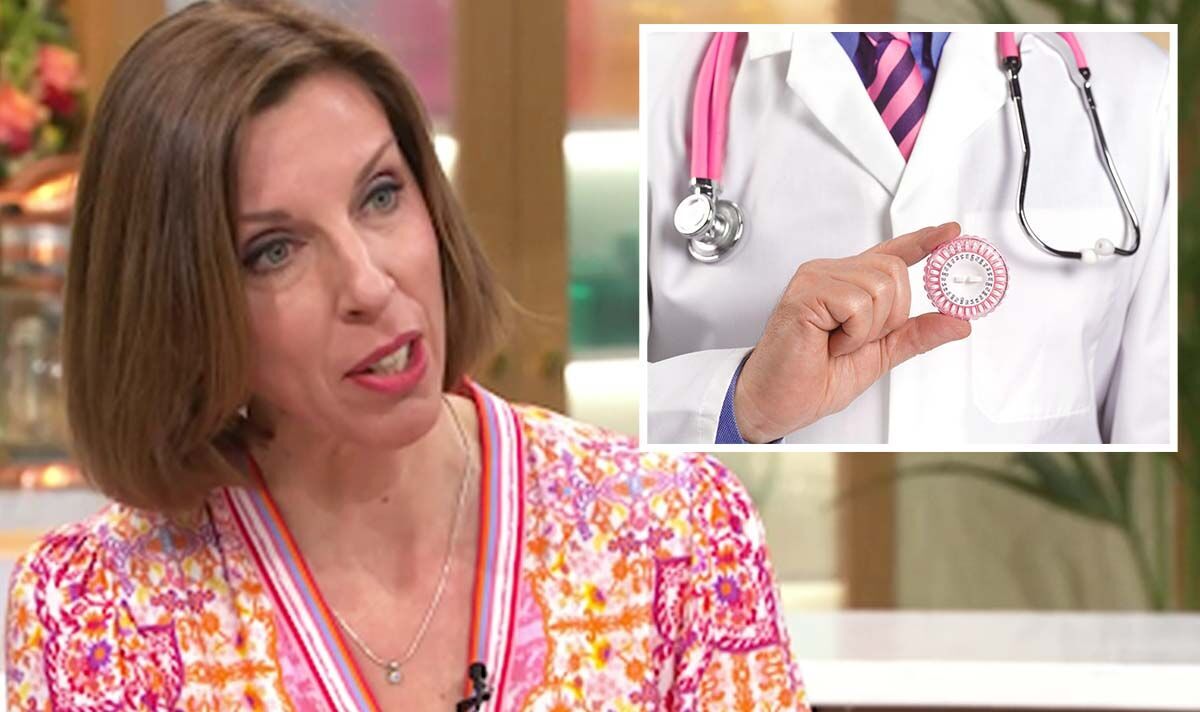
Hormone Replacement Therapy: Expert outlines risks of cancer
We use your sign-up to provide content in ways you’ve consented to and to improve our understanding of you. This may include adverts from us and 3rd parties based on our understanding. You can unsubscribe at any time. More info
HRT is a treatment designed to relieve the tricky symptoms of menopause. Its primary function is to replace or top up hormones that are at lower levels. “The most important hormone is oestrogen,” said Dr Newson.
Speaking on ITV’s This Morning, the doctor continued: “We now have a body identical oestrogen, it’s the same oestrogen we produce when we’re younger.
“It’s very safe, obviously, it’s safe because it’s our own hormone.
“We also know that oestrogen on its own is associated with a lower risk of breast cancer and about 40 percent lower risk of dying from breast cancer.”
However, there’s conflicting evidence when it comes to the HRT form.

Cancer Research UK reports that hormone replacement therapy has been found to increase the risk of breast, ovarian and womb cancer.
However, the research portal also notes that this increased risk is “small”. That’s why in some cases the benefits of taking the hormone treatment could outweigh the risks.
Dr Newson also noted that the oestrogen used nowadays is “much safer” compared to the synthetic version used in the past.
Oestrogen isn’t the only hormone you might need. The doctor said: “Women that have a womb still need to have progesterone.
“And that has never been shown to be associated with the risk of breast cancer.
“The risk of breast cancer for lots of types of HRT isn’t there and actually there are some benefits.”
But the treatment still remains heavily debated and many are worried about opting for HRT.
“We need to look at the evidence because that’s the most important thing,” the expert noted.
Womb cancer
She continued: “When women have oestrogen on its own, if they’ve got a womb, it can stimulate the lining of the womb, so yes there’s an increased risk of womb cancer.

“But we don’t give women oestrogen on its own.
“We give it with progesterone either as a capsule…or Mirena Coil and that thins the lining of the womb, so we don’t have this risk, it’s a lot lower.”
Ovarian cancer
Dr Newson admitted that questionnaire study showed there might be a link. But she said that questionnaire studies don’t represent “good data, so that hasn’t been proven”.
“We know that women who take the contraceptive pill have a lower risk of ovarian cancer, so HRT might be associated with a lower risk,” she added.
Source: Read Full Article